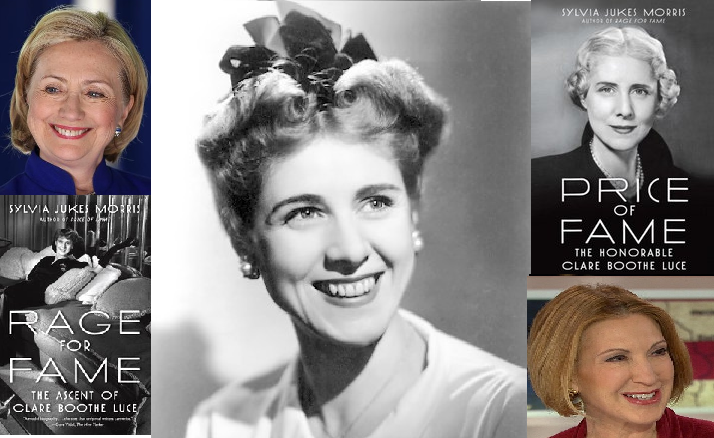The 2016 presidential election season has now officially begun with the commencement of the first Republican presidential debate, held in Cleveland, this past Thursday evening, August 6, sponsored by the Fox cable TV news network. The heightened anticipation and the attention was on the “man of the hour,” or at least, the “man” of the two–hour debate slugfest, Donald J. Trump, otherwise known in popular lore as “The Donald.” What people expected out of this debate was threefold: whether the “10 billion dollar” man who was placed in the middle (due to his poll ratings) would, a. implode, b. explode, or c. vaporize the competition. Depending on whom you talked to—or listened to—or felt yourself, it was most likely a little of each, with the betting money on items a. and b. (and if he “vaporized” anything, it might have been his own candidacy, through the medium of his own words in testy exchanges with each of the moderators and especially in his now-well known views of female comedians and newscasters). The Donald, being “The Donald,” couldn’t be otherwise; that is, be his own spectacularly bombastic—yet ever arrestingly interesting–self, even without his sartorial headgear emblazoned with the demand to make “America great again.”
And as soon as the opening question was announced, the fireworks started, or if you care to put it in equine terms, the candidates galloped right out of the gate like the horses at the Belmont race track, the question being whether one of them would end up being the “American Pharaoh” of this race. While each of the candidates got off a good line or two or merely parroted their “talking points,” the big surprise of the night wasn’t provided by Trump and company. The surprise came from the debate that was held beforehand for those who didn’t make the poll-cutting statistical cut to be included in the grilling by debate moderators Megyn Kelly, Bret Maier and Chris Wallace. It was the debate that came to be known as the “Happy Hour debate” where the seven other non-selected debate candidates did their best to have a tussle of their own. And the “winner” of that one was a surprisingly unexpected candidate: the former Hewlett Packard executive, Carly Fiorina.
According to press reports and from film clips on the evening news, Ms. Fiorina came out of the “Happy Hour” debate very happy indeed; for she showed—or it should be said, proved—that to the audience assembled to watch that debate “pre-game show” she showed that she had the necessary debate chops and showed that she could hold her own amongst the men beside her, literally sucking the air away from the expected “second-tier” stars like former Texas Governor Rick Perry or present Louisiana Governor Bobby Jindal. Ms. Fiorina had her stock lines, too, like “Hillary is a liar!” but in her responses she showed that she is a force of political nature and perhaps may be the kind of “force” that will have to be dwelt with, by other Republican party leaders and eventually, perhaps, the Democrats as well. It was a performance that, in retrospect, caused not a few pundits from wondering whether it was a mistake not to have included her—or the others—in the main debate of the night in the first place. But the polls—and the Fox corporate honchos—had decreed otherwise and what was done was done. It could be that the “other” debate could change the makeup of the future ones to come and may lead to the inclusion of Ms. Fiorina and the others as well. By the time September comes and the next debate that is scheduled is held, we’ll know how it panned out.
But in the meantime, all attention is on Carly Fiorina and the intriguing possibility that she could be the Republicans’ answer to the Democrats’ Hillary Clinton (assuming, of course, that as the preferred favorite, she will go on to win the nomination, provided she gets that far without any unsurmountable obstacles—like a Joe Biden in the shadows, pondering his chances and hedging his bets) and both women end up as the presidential candidates of their respective parties. Where that to happen, that would really be a contest for the ages—and one that is historically overdue.
It is curious to note that of all the modern industrialized nations, the United States, for all its progress and development economically, socially, and politically, has never had women as political leaders, at least on the presidential level. Other countries have surpassed us in that regard, with women as heads of governments, whether they be presidents or prime ministers: Ireland, Iceland, Britain, Israel, Liberia, Norway and Denmark. But never here. There have been times, though, when women made the attempt to run for president; there was Victoria Woodhull in 1872, even though she could never vote for herself, since women didn’t get the franchise until 1920, when by that time, the 19th Amendment to the Constitution had been adopted, or Shirley Chisholm, the first African-American woman in Congress from New York City who made what was a symbolic run for the Democratic nomination in 1972.
This is not to say that women have not been a part of American political life; they have exerted influence, either through elected office or behind the scenes or both. We’ve had influential women from behind the scenes like Abigail Adams or a Dolley Madison or women like Eleanor Roosevelt, who, in her day, took a more public role in American life, despite the limitations that women were still forced to observe at the time. There were women who were elected to Congress on their own, like Jeanette Rankin, who, as a pacifist, had the distinction of being (besides a woman) the only member of the House of Representatives to vote against the United States’ participation in both World Wars and there were women who were elected either through the death or term limitations of their husbands, like Lurleen Wallace (who succeed her term-limited husband to the governorship in Alabama), or Muriel Humphrey (who was appointed to finish out the unexpired Senate term due to the death of her husband, the former Vice President who hailed from Minnesota). In more recent times, there have been women Governors like Madeleine Kunin from Vermont or Ella Grasso from Connecticut. On the national level there have been other First Ladies besides Mrs. R. who have advised their president husbands (like Lady Bird Johnson and Rosalynn Carter, who memorably sat in on Cabinet meetings, to the dismay of Cabinet members). But though there were women who came close to soaring to the top politically, none ever quite got to breaking that “glass ceiling.”
There was a time when one woman strode across our political landscape and made men and women take notice. She was a socialite and a playwright and a journalist. And before she made political history by being elected a Republican member of Congress from Connecticut (actually succeeding her father-in-law) and becoming the United States Ambassador to Italy (under President Eisenhower), she was primarily known as the wife of probably the most important media tycoon of the 20th century, Henry R. Luce, the founder/owner of the TIME/LIFE magazine media empire. Among other things, she would be also be famously known—and made—what was then known as a “celebrity convert” to Catholicism by none other than Archbishop Fulton J. Sheen, who had the tenacity and temerity to shove her into the confessional when she sought counsel from him concerning her personal life and put her on the road to conversion. And in her later years, she would become the latter-day version of Theodore Roosevelt’s ever-opinionated daughter, that doyenne of official Washington, Alice Roosevelt Longworth, through her soirees and get-togethers with America’s rich, powerful and politically connected.
Clare Boothe Luce was a trailblazer in many ways and she made contributions to American political, cultural and social life in her time. But the most important aspect of her life—and of her personality—was what she did—and didn’t do—with that life. It could be summed up by the titles of the two-volume biography written by noted historian/biographer Sylvia Jukes Morris: The Rage for Fame and The Price of Fame, the first book published in 1997, and the second volume just last year. Together, those two titles describe not only Clare Boothe Luce’s life, but also the conundrum—and the dangers and difficulties—facing the two women who are today trying the gain their respective party’s presidential nomination for 2016.
There is regrettably, a double standard when it comes to women in politics. To show that they are just as qualified—or more so—than the men to attain political office, they have to “outperform” them in every instance, whether it is in knowledge, skills, debating abilities or fundraising expertise. And even then, in the eyes of some, they still come up short and as a result are either dismissed or ignored. Many women have proven that view not only to be wrong, but false—but that task is so much harder to accomplish when it comes to the “presidential ceiling.” There is the danger, too, that the ambition for the office will appear unseemly or off-putting; it is a view that is unjust as well as unfair.
What is seen as “normal” for a man in politics is viewed otherwise as far as women are concerned and it is a prejudice that has a long way to go before being eradicated from our consciousness. Clare Boothe Luce had talent, ambition, intelligence and charm in equal quantities. She utilized them to the best of her abilities but in the end, gifted as she was, she could not overcome those barriers which kept her from reaching even greater heights (if she had so desired). The test for the immediate future is whether a Hillary Clinton or a Carly Fiorina can scale that political Everest. If, somehow, they do not, it will not be due to lack of effort—or ambition. They will, however, have had put another crack in that glass ceiling and taken another brick out of that wall that prevents talented women like themselves from living in another House that their birthright and citizenship have given them every right to live in.
Clare Boothe Luce’s life provides a cautionary tale in this regard and offers a lesson to anyone—man or woman—who dares for the ultimate prize. And it is also a caveat to prospective candidates—men as well as women—that it will take more than a caustic “one-liner” or a repetitive “talking point” in order to appear and actually be considered authentic by the voting public.








